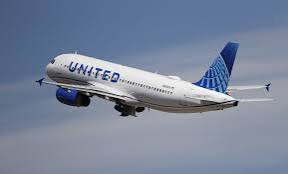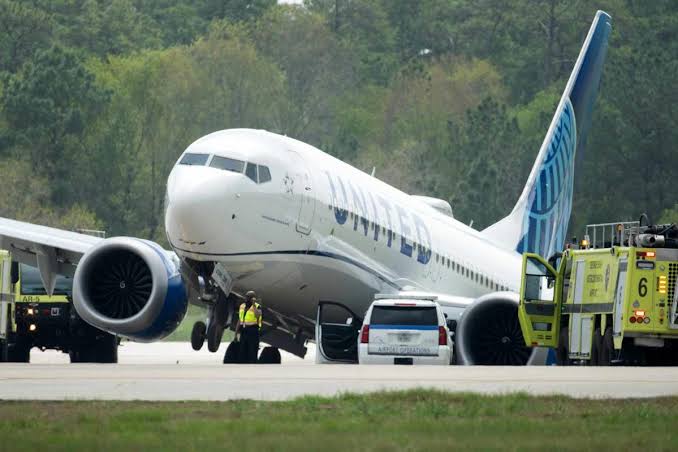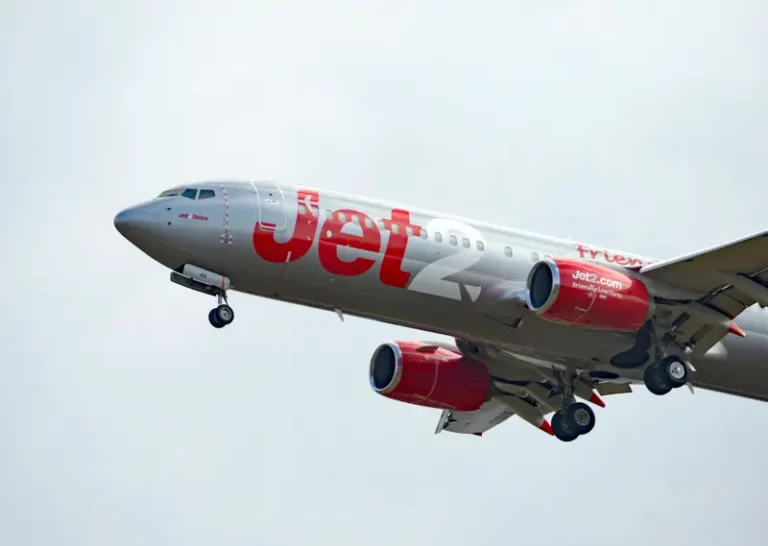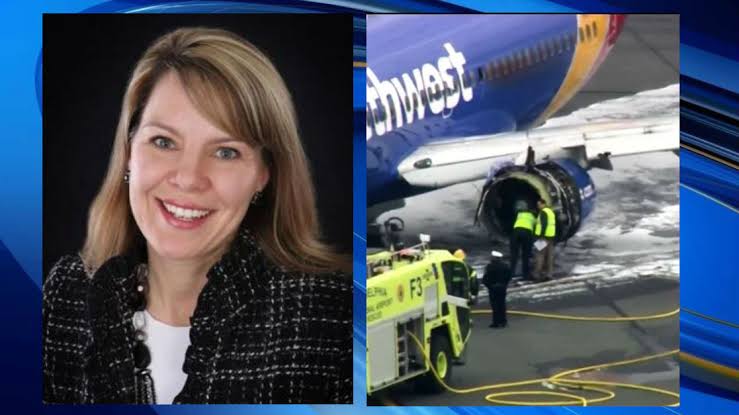Why United Airlines chose Nigeria over neighbouring countries for emergency landing
Why United Airlines Chose Nigeria Over Neighbouring Countries for Emergency Landing
On March 27, 2025, a United Airlines flight en route from Johannesburg to Washington D.C. made an emergency landing in Lagos, Nigeria. The unscheduled diversion raised eyebrows and sparked interest across the aviation industry and public sphere, especially considering the abundance of alternative landing sites in neighboring West and Central African nations. Why, then, did United Airlines opt for Nigeria over countries like Ghana, Cameroon, or Côte d’Ivoire?
This article delves into the strategic, technical, geopolitical, and infrastructural reasons that informed the airline’s critical decision. The analysis considers air traffic control capabilities, international aviation standards, bilateral relations, airport infrastructure, and more.

1. The Incident in Context
Flight UA990, a Boeing 787-9 Dreamliner, was flying at cruising altitude over Central Africa when pilots reported a potential technical anomaly. The aircraft was not in imminent danger but needed to land at the nearest suitable airport to assess the situation and ensure passenger safety. After coordination with air traffic control and airline operation centers, the decision was made: land in Lagos, Nigeria.
The flight diverted westward and touched down safely at Murtala Muhammed International Airport (LOS) in Lagos. No injuries were reported, and all passengers were accommodated pending alternative travel arrangements.
But given the options, why Nigeria?
2. Nigeria’s Aviation Infrastructure: A Regional Powerhouse
Nigeria is home to the busiest airports in West Africa, with Murtala Muhammed International Airport leading the way. The airport serves over 7 million passengers annually and is classified as Category 1 by the U.S. Federal Aviation Administration (FAA). This status means Nigeria complies with International Civil Aviation Organization (ICAO) safety standards—an important consideration for U.S.-based airlines.
The Category 1 rating is critical. It means the Nigerian Civil Aviation Authority (NCAA) has met rigorous oversight and safety standards, which gives U.S. carriers like United Airlines the legal clearance and operational confidence to land in Nigeria. Few West African countries hold this certification.
Moreover, LOS has modern infrastructure, including:

A runway capable of handling wide-body aircraft like the Boeing 787
State-of-the-art fire and rescue services
Secure parking bays and hangars
On-site engineering support
Availability of ground handling and fueling services from international providers like Swissport and SAHCO
This makes Nigeria a far more appealing emergency destination than some of its neighbors, where infrastructure may be outdated or limited.
3. Geopolitical Stability and Diplomatic Channels
United Airlines, like any international carrier, considers political stability and diplomatic relations when choosing a diversion airport. Nigeria and the United States have a long-standing diplomatic relationship with open channels for commercial aviation.
The U.S. maintains a robust embassy presence in Nigeria, and vice versa. In the event of a serious emergency involving American nationals, having immediate access to U.S. consular services is invaluable. This level of cooperation cannot always be guaranteed in smaller or less stable nations.
While countries like Mali or Niger have witnessed recent coups and political instability, Nigeria, despite its challenges, remains a key U.S. ally in the region. It has more predictable regulatory frameworks and a government that can rapidly coordinate with foreign entities in times of crisis.
4. Nigeria’s Strategic Location and Airspace Management
Geographically, Nigeria sits in a central location in West Africa, easily reachable from multiple points over the continent. It lies near major transatlantic and intra-African air corridors, making it a hub for emergency diversions.
Nigeria’s airspace is managed by the Nigerian Airspace Management Agency (NAMA), which offers radar coverage, enroute navigation aids, and modern communication systems that comply with ICAO standards.
When an aircraft declares an emergency, air traffic control plays a critical role in guiding it safely to the ground. Nigeria’s experience in handling high-traffic volumes and emergencies made it a logical choice over nations with less developed ATC infrastructure.
5. Presence of International Airlines and Technical Support
United Airlines’ choice may have also been influenced by the concentration of other major international carriers that operate out of Lagos. British Airways, Lufthansa, Qatar Airways, Emirates, and Delta all have regular service into Lagos, which creates a robust aviation ecosystem with global standards.
This environment ensures:
Availability of technical expertise
Access to replacement parts if needed
Availability of commercial flights to rebook passengers
Presence of certified maintenance engineers and ground handling teams
This would not be the case in every neighboring country. In contrast, a landing in smaller nations could delay repairs, passenger transfers, and create significant logistical challenges.
6. Passenger Welfare and Accommodation Infrastructure
An emergency landing is not just about the aircraft; it’s about the people inside. Nigeria’s major cities, particularly Lagos, have an array of international-standard hotels, healthcare facilities, and ground transport options.
Lagos offers:
Proximity to international hotels like Marriott, Sheraton, and Radisson Blu
Access to reputable private hospitals
Local staff experienced in managing international travelers
Security arrangements for safeguarding passengers and crew
Airlines must think ahead: if passengers are stuck overnight or longer, can they be accommodated comfortably and safely? Nigeria’s urban infrastructure gave United Airlines confidence in its ability to care for over 250 passengers and crew.
7. Operational Experience and Prior Collaborations
United Airlines has experience operating in African markets, including Nigeria. Though it suspended its regular service to Lagos years ago due to economic and route viability concerns, the familiarity remains. Corporate knowledge of operational procedures, local contacts, and historical partnerships would have factored into their risk assessment.
The airline’s crisis response team would likely have pre-established contingency plans that include Lagos as a top-tier diversion point in West Africa.
8. Comparative Analysis: Why Not Ghana, Côte d’Ivoire, or Cameroon?
While Ghana (Kotoka International Airport, Accra) is a well-regarded regional hub, it handles less international traffic and lacks the scale of Lagos. Ghana has strong U.S. relations and FAA Category 1 status, but it might have been slightly out of optimal diversion range depending on the aircraft’s position when the emergency was declared.
Côte d’Ivoire (Abidjan) and Cameroon (Douala or Yaoundé) have improving aviation sectors but do not match Nigeria in terms of infrastructure depth, international airline presence, or technical readiness.
Moreover, Nigeria’s dominance in the Economic Community of West African States (ECOWAS) and relative airspace sovereignty gives it precedence in emergency planning across many commercial flight routes.
9. Lessons for the Aviation Industry
The UA990 emergency landing shines a spotlight on the importance of regional aviation hubs in global air travel. Airlines, regulators, and governments must continue investing in airport infrastructure, safety standards, and international collaborations to ensure that emergency response can be swift and effective.
For Nigeria, this incident reinforces its status as a regional aviation leader. It also serves as a case study for other nations in how to position themselves as trusted partners for international carriers.
10. Conclusion
When United Airlines chose to land in Nigeria during an emergency, it wasn’t a random decision. It was a calculated, data-driven choice based on Nigeria’s superior infrastructure, regulatory compliance, geopolitical stability, and ability to accommodate passengers and crew safely.
In a region with varying degrees of readiness, Nigeria stood out as the safest bet—and the UA990 incident may just reinforce its role as a key player in the future of African aviation.
As air travel continues to grow across Africa, Nigeria’s preparedness and responsiveness could very well set the benchmark for other countries aiming to play a role in global aviation.






